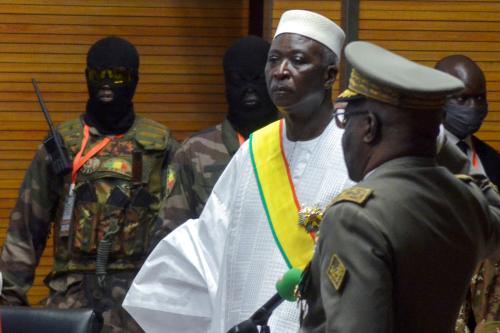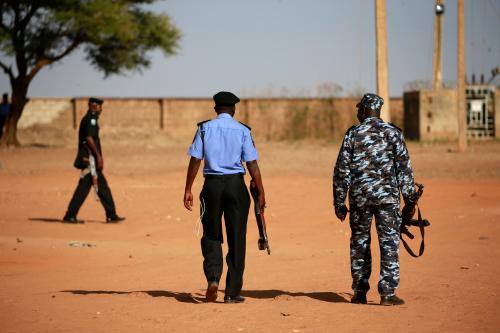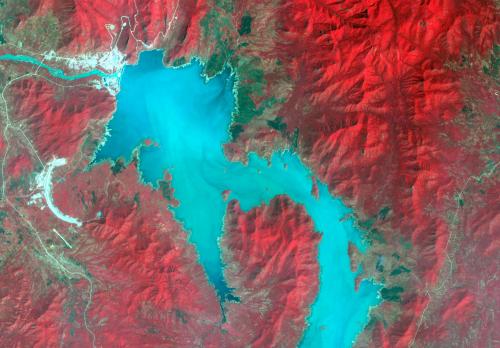Africa faces third wave, COVAX’s limitations, and vaccine technology transfer hub in South Africa
As the third wave of COVID-19 sweeps through the continent, African governments are struggling to contain the virus, with only 1.12 percent of the African population vaccinated. With the virus’s rapid surge, the World Health Organization (WHO) projects the virus will outpace cases from the second wave by early July. DNA sequencing by the WHO of recent COVID-19 cases in the DRC and Uganda revealed most cases were tied to the Delta variant of the virus. The Delta variant has also been identified in 12 other African countries. With at least 20 nations entrenched in a third wave of the pandemic, many countries are reporting severe oxygen shortages—an essential component of treating high-risk cases—which are causing preventable deaths. African CDC Director John Nkengasong expressed concern regarding the severity of the third wave, stating, “We are not winning in Africa this battle against the virus.”
The COVAX program, a global vaccine-sharing scheme devised by the WHO, is facing shortages in the midst of the heightened need by African countries. COVAX has “delivered 90 million doses to 131 countries”—40 million of which have been administered in Africa—but many of these countries have already or nearly exhausted their supplies. Facing uncertainty about vaccine supplies, many COVAX-participating countries are halting or slowing their vaccination efforts to ensure their citizens are not left partially vaccinated. The Biden administration, hoping to accelerate the pandemic’s end, has responded by announcing a donation of 500 million doses of the Pfizer vaccine to low-income countries.
In a bid to resolve longstanding vaccine shortages in Africa, the WHO announced Monday that it is negotiating the development of a technology transfer hub in South Africa. The hub will provide companies from low- and middle-income countries with the knowledge and licenses to manufacture mRNA COVID-19 vaccines, but relies on a consortium of companies with the mRNA technology, such as Pfizer and Moderna, to participate in the technology transfer.
Largest solar plant in West Africa opens in Togo; Mozambique receives grant for agro-processing enterprises
The largest solar plant in Western Africa opened on June 24 in Togo. The plant, which is located in the Centrale Region of Togo, will provide electricity to 158,333 households given its 50-megawatt capacity. Any electricity that is not consumed locally will be diverted to parts of Ghana and Nigeria. The plant is also the country’s first private utility solar park and was built by Dubai-based AMEA Power. The company chose Togo because of the country’s “renewable-friendly” regulations that allowed the project to be completed in just 18 months. AMEA Power was given further assurance when the project was supplied with $8 billion in pre-funding from Togo’s National Development Plan. The project also provided local training and job opportunities, as 80 percent of the construction workforce was Togolese.
In other news, the African Development Bank (AfDB) announced the approval of a $1 million grant on June 24 that will support small- and medium-sized agro-processing enterprises in Mozambique. The grant, which is financed by the Italian Technical Cooperation Fund, will assist approximately 300 businesses to boost their productivity and improve quality control. The project also seeks to enable transformative infrastructure growth and agriculture transformation, two strategic pillars outlined in the AfDB’s Mozambique’s Country Strategy Paper. Italian Ambassador Gianni Bardini commented that the grant improves bilateral relations and “can act as a catalyst to extend it to the private sector where it exists a huge and largely untapped potential.”
Ethiopia holds elections amid violence; combating terrorism in Mozambique and the Sahel region
Ethiopia held elections this past Monday despite ongoing violence in the Tigray region and all regions not participating in the vote. The day after the elections, dozens of people were killed in a government airstrike that hit a market in Tigray, one of the deadliest events in an ongoing war that first broke out in November 2021 and that has continued to create instability and now famine in the region. As of this writing, there are no preliminary results from the election. This is the first test of Abiy Ahmed’s power since the war started due to the election being delayed twice.
In other news, leaders from 16 southern African nations have agreed to send troops to Mozambique on Wednesday with the goal to “combat terrorism and acts of violent extremism.” In addition, an EU military mission to Mozambique could be approved next month with the aim of training Mozambican troops to tackle the ongoing insurgency. The EU hopes to have the mission up and running within the next several months after countries in addition to Portugal (which has already supplied some troops) offer military aid.
Reports of attacks linked to Al-Qaeda and the Islamic State are on the rise throughout the Sahel region—despite the presence of U.N peacekeepers. In Burkina Faso, a police unit was ambushed late on Monday leaving 11 polices officers dead, and according to Reuters, about 1.2 million people in the nation have been displaced by violence. In Nigeria, since attacks escalated 12 years ago, nearly 350,000 people have died as a result of conflict with insurgents, according to the United Nations Development Program (UNDP). Projections by UNDP suggest that if the conflict continues to 2030, more than 1.1 million people may die.








Commentary
Africa in the news: A COVID-19 third wave, solar energy in Togo, and security updates
June 26, 2021